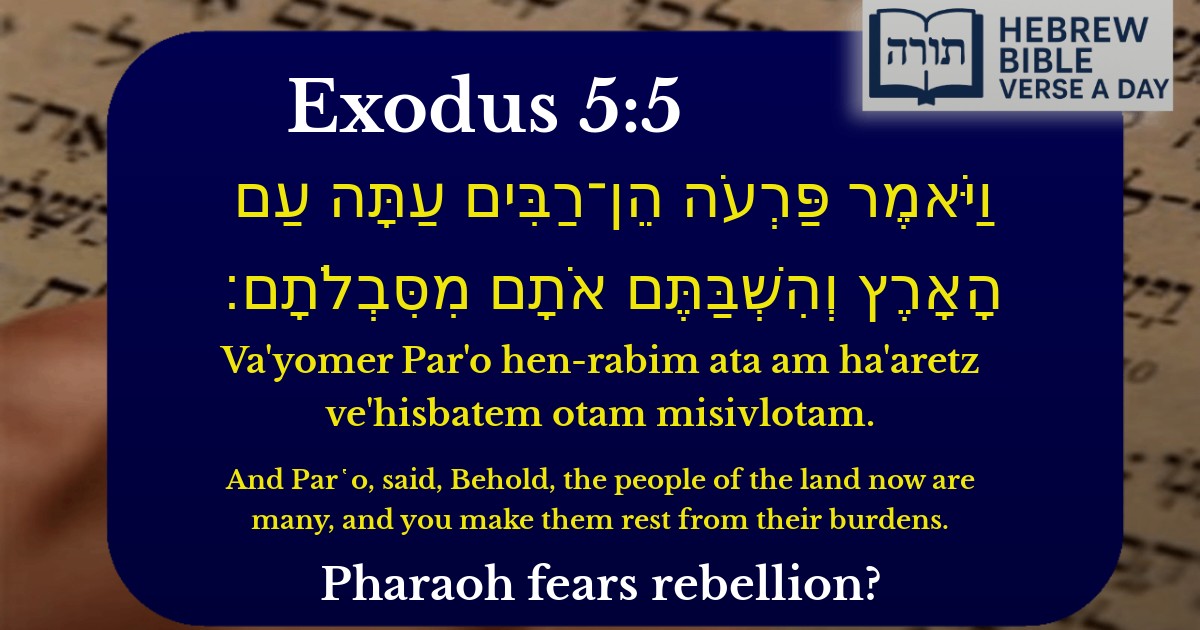Join Our Newsletter To Be Informed When New Videos Are Posted
Join the thousands of fellow Studends who rely on our videos to learn how to read the bible in Hebrew for free!
Hebrew Text
וַיֹּאמֶר פַּרְעֹה הֵן־רַבִּים עַתָּה עַם הָאָרֶץ וְהִשְׁבַּתֶּם אֹתָם מִסִּבְלֹתָם׃
English Translation
And Par῾o, said, Behold, the people of the land now are many, and you make them rest from their burdens.
Transliteration
Va'yomer Par'o hen-rabim ata am ha'aretz ve'hisbatem otam misivlotam.
Hebrew Leining Text
וַיֹּ֣אמֶר פַּרְעֹ֔ה הֵן־רַבִּ֥ים עַתָּ֖ה עַ֣ם הָאָ֑רֶץ וְהִשְׁבַּתֶּ֥ם אֹתָ֖ם מִסִּבְלֹתָֽם׃
Parasha Commentary
📚 Talmud Citations
This verse is not quoted in the Talmud.


Pharaoh's Concern and the Jewish People's Growth
The verse (Shemot 5:5) records Pharaoh's statement: "Behold, the people of the land now are many, and you make them rest from their burdens." Rashi explains that Pharaoh was alarmed by the rapid growth of Bnei Yisrael, fearing they would rebel if given respite from their labor. His words reflect a shift from earlier policies, as he now views their rest as a threat to his kingdom.
Pharaoh's Misinterpretation of "Am Ha'aretz"
The term "Am Ha'aretz" (people of the land) is significant. Ramban notes that Pharaoh deliberately avoided calling them "Bnei Yisrael" or "Ivrim," instead using a term that implied they were merely a local population, not a distinct nation. This linguistic choice reveals his attempt to deny their unique identity and divine destiny.
The Sin of Forced Labor
The Midrash (Shemot Rabbah 5:18) highlights Pharaoh's hypocrisy—he claimed concern for the people's rest while intensifying their oppression. The Sforno adds that Pharaoh's true fear was that allowing rest would enable Bnei Yisrael to reflect on their spiritual purpose and seek freedom.
Key Lessons from the Verse